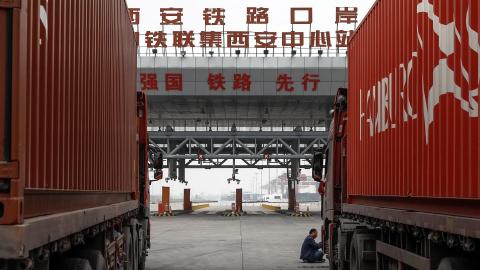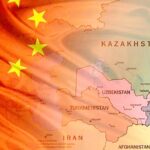Summary by Geopolist | Istanbul Center for Geopolitics:
The paper titled “Europe’s De-risking from China: Dead on Arrival?” by Nicola Casarini examines the European Union’s approach to managing its economic and strategic relationship with China amidst growing geopolitical tensions. Here are the key details:
Background and Concept of De-risking
- De-risking vs. Decoupling: While the U.S. has increasingly advocated for decoupling from China, particularly among conservative policymakers and former Trump administration officials, the EU has focused on “de-risking.” This approach seeks to minimize strategic dependencies on China without completely severing economic ties. The term “de-risking” was popularized by Ursula von der Leyen, the President of the European Commission, in March 2023.
Divergent National Approaches
- Italy’s Contradictory Approach: Italy presents a notable case where the central government, under Prime Minister Giorgia Meloni, has attempted to reduce critical dependencies on China. This effort began under Mario Draghi’s administration and continued under Meloni’s coalition. Despite these efforts, various local authorities, companies, and universities in Italy continue to seek or expand cooperation with China, particularly in sensitive areas such as technology and industrial development.
- Industrial Cooperation: The Italian government, paradoxically, has also pursued closer industrial ties with China. In July 2024, Meloni visited China to strengthen bilateral relations after Italy’s formal exit from the Belt and Road Initiative. A three-year Action Plan was signed to enhance economic cooperation, focusing on electric vehicles and green technologies. Chinese automaker Dongfeng, for instance, is exploring the establishment of a factory in Italy with a production capacity of over 100,000 hybrid and electric vehicles annually.
Broader European Context
- Germany and Other Countries: Similar trends are observed across other EU nations. Germany has signed a Memorandum of Understanding (MoU) with China to cooperate in automated and connected driving technologies. Meanwhile, Slovakia and the Czech Republic have been considered potential sites for Chinese electric vehicle plants.
- Hungary and Spain: These countries have successfully attracted significant Chinese investments. For example, Chinese automaker BYD announced plans to build a major electric vehicle manufacturing plant in Hungary, capable of producing 200,000 vehicles per year. In Spain, the Chinese automaker Chery, in partnership with Ebro-EV Motors, plans to produce 150,000 cars by 2029 with substantial government incentives.
Challenges and Tensions
- EU’s Tariff Measures: In July 2024, the EU imposed tariffs of up to 37.6% on Chinese electric vehicle imports. This measure aims to encourage Chinese manufacturers to establish production facilities within Europe, aligning with the de-risking strategy. However, this approach contrasts with the more stringent U.S. stance, potentially creating a rift in transatlantic relations.
Strategic Implications and Future Directions
- US-China Relations: It also touches on the broader geopolitical context, noting that the U.S. views China’s advancements in technology and industrial policy as national security threats. This perspective could intensify if Donald Trump or a like-minded Republican were to return to the White House, possibly accelerating U.S. decoupling efforts.
- China’s Strategic Ambitions: On the Chinese side, the Third Plenum of the Central Committee of the Chinese Communist Party in July 2024 emphasized a shift towards high-tech modernisation by 2035, seeking technological sovereignty even at the expense of short-term economic gains.
In summary, the paper discusses the complexities and contradictions within the EU’s de-risking strategy, highlighting how national interests, economic opportunities, and geopolitical pressures shape the varied responses across member states. It calls for a cohesive and transparent Euro-Atlantic dialogue to navigate the challenges posed by China’s rise.
Read more iaicom2447
Source: Istituto Affari Internazionali







